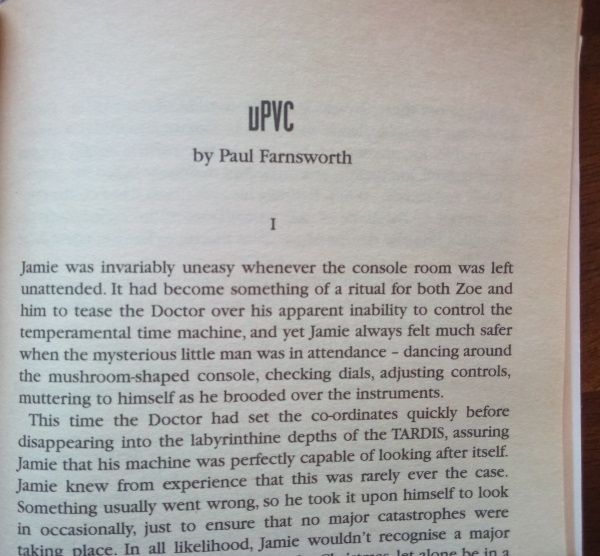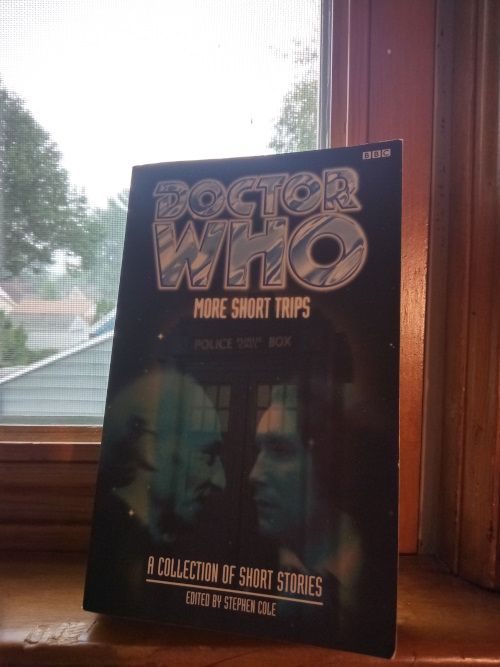I got a distinct sense of déjà vu reading Paul Farnsworth's "uPVC". Just as in "Undercurrents", the TARDIS crew hear a knocking on the doors while the ship is traveling through the Vortex. But instead of a Time Rider, the chappy knocking is one Bill Rigby from ThermoPort Windows Ltd. In a very odd scene, he tries to sell the Doctor new windows but the Time Lord is not interested for obvious reasons. Not even the promise of double glazing can change his mind. However, his curiosity is piqued when Rigby informs him that the windows have, not only a lifetime guarantee, but also offer a view of the owner's choice.
We then cut to Ace wandering a hallway in the TARDIS. She comes across a door that is padlocked and is intrigued. Curiosity gets the better of her and so she jimmies the lock off but is caught by the Doctor before she is able to actually find out what lies behind the door. He is actually angry and Ace wanders back to the console room in contrition.
The Doctor enters the room which contains a large mock-Georgian bay window from ThermoPort Windows Ltd. It offers a view of the verdant landscape he knew as a boy. The Doctor waxes nostalgic about his childhood and briefly considers returning to the lovely fields he played in as a Gallifreyan youth. But he rejects the idea invoking Thomas Wolfe's maxim "You can never go home." Instead he resolves to find something better than a padlock to permanently seal the room.
While the first half of this tale has a whiff of absurdity to it, the second is more serious and wistful. It being a short story, there isn't much space to really plumb the depths of the thematic material here so the reader is left to take the plunge themselves.
I got some Citizen Kane vibes with the view from the window being Rosebud. My mind conjured up a Blade Runner connection too. Memories. I'm talking about memories. Just as that film asked about the role of memories in helping comprise our humanity, this story made me wonder what it would be like to have had several lives, so to speak, and countless memories. Was this intended as a parable about aging?
Another fine story and another one that skirted some of the conventions of Doctor Who to go somewhere new. Good stuff.


No comments:
Post a Comment